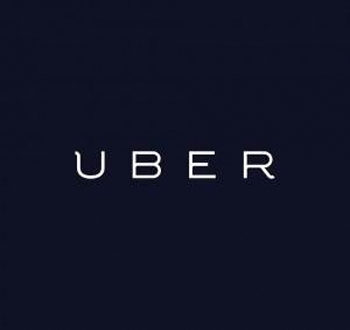Network Group MD Phylip Morgan shares his views following the attack on Uber drivers earlier this week.
Uber, the San Francisco-based company founded in 2009, now operates in 53 countries. It is coming under continued pressure and criticism from traditional taxi companies. Just this week the Guardian reported that 10 Uber Cars were damaged at Mexico City Airport.
It also faces legal action over claims it’s failing to provide basic rights to its drivers, reports the BBC.
In the UK, Uber is available in Leeds, London and Manchester. Uber describes itself as a pick-up service that connects passengers with vetted private drivers (although how ‘vetted’ the drivers are is a cause of some consternation).
Uber’s app is backed by Google, integrated into Google Maps, and available on the major smartphone platforms. It allows customers to order taxis through their smartphone based on their location. They can see who their driver will be, and then track the arrival of their car.
Whatever the controversial views on their service, one thing is for certain: More people have probably been ripped off by a taxi cab driver in the last ten years than have even used the Uber service to date (yep, this is a total guess, but consider it yourself in a global context and I’m sure you will conclude the same).
In fact, the main reason people are flocking to the service is that it delivers a great customer experience;
- It’s convenient – you can log on from a smartphone app
- It’s easy – you can pay quickly online without the need for cash
- It’s value for money – the fare is an agreed fixed price so we don’t have to haggle or check with the driver before jumping in to ensure we’re not ripped off
- It’s punctual – you don’t need to call again to see why your taxi has still not arrived
- It’s guaranteed – women flock to the service as all drivers are vetted and checked
- It’s efficient – drivers signing up with Uber get guaranteed fares and payment without all the administration hassles
Where Uber differs from other taxi or private hire firms is that it cleverly puts together drivers and customers based on their location and needs. Fares are set by the user’s smartphone tracking their start and finish location, and the time the journey takes. The user is given a set price set centrally by Uber, and visible to the user before the journey begins.
Other advantages include the fact that the user pays via the app, so no cash is required. Finally, if you and another Uber user wish to make a similar journey at a similar time, you can share the journey and split the cost, without having to go through the social awkwardness of actually conversing with another person and working out the cost.
But why is Uber so controversial?
Honestly, because it has disrupted the taxi and private hire industries, which have always been tough to regulate, but have previously have been left untouched by the disruptive power of the internet. The book industry, record industry, newspaper industry and the retail High Street have all had to deal with the impact of the change – and now it’s the turn of the cabbie.
The problem is, your traditional cabbie doesn’t want the world to change – he wants to continue doing what he’s always done. They are angered at their livelihoods being threatened by a bunch of software coders from California.
In the summer of 2014 London cab drivers staged a series of demonstrations against Uber. Their complaints are easy to understand and sympathise with, if probably doomed to fail as we all know that “the customer is king”.
So what can we learn from Uber?
Firstly, serve the customer well and put them first. Customers love any service or company that provides value for money (that doesn’t necessarily mean cheap) and is easy, convenient, efficient and comes with a guarantee.
Secondly, build your strategy on the underlying problem for the customer. To be a licensed taxi driver (hackney carriage) in most cities you need to be fully vetted. In London you have to do ‘the knowledge’ so that you can always find your way from A to B regardless of where those places are.
Licensed taxi drivers also have to use an independently monitored meter to set fares, and record how much money they make. The protection afforded to licensed cabbies in the UK is that they are only allowed to pick up fares from the street. That is the difference between a taxi and a private hire vehicle (otherwise known as a minicab) – a minicab must be booked in advance and cannot pickup from the street.
What Uber has done is take this customer pain of minicab/taxi selection away by providing the central pricing mechanism (in effect a cab meter) and the central booking system. The result is you don’t need to book an Uber cab in advance, just request one when you are ready to leave.
Whilst this is great news for the customers, it is a problem for the industry in that Uber is in compliance with the private hire legislation, but removes the key competitive advantage of licensed taxi drivers.
About the author
Phylip Morgan (@phylipm) is Managing Director of Network Group and has over 25 years’ business experience growing a host of businesses in the industry. He is passionate about small business and says he "loves helping companies and business owners achieve their goals – and grow like crazy".
 PCR Tech and IT retail, distribution and vendor news
PCR Tech and IT retail, distribution and vendor news




